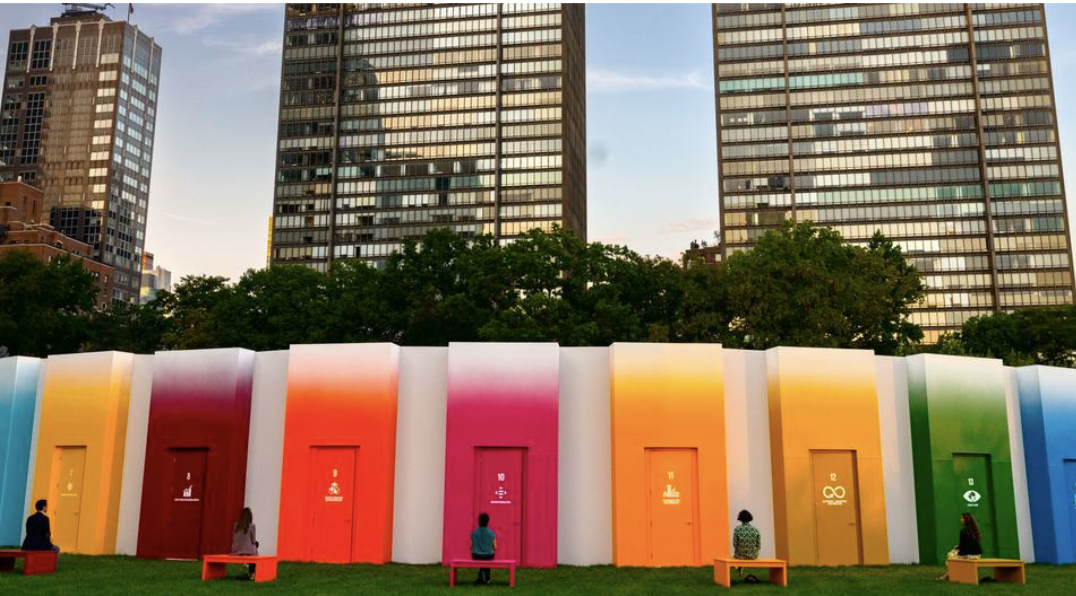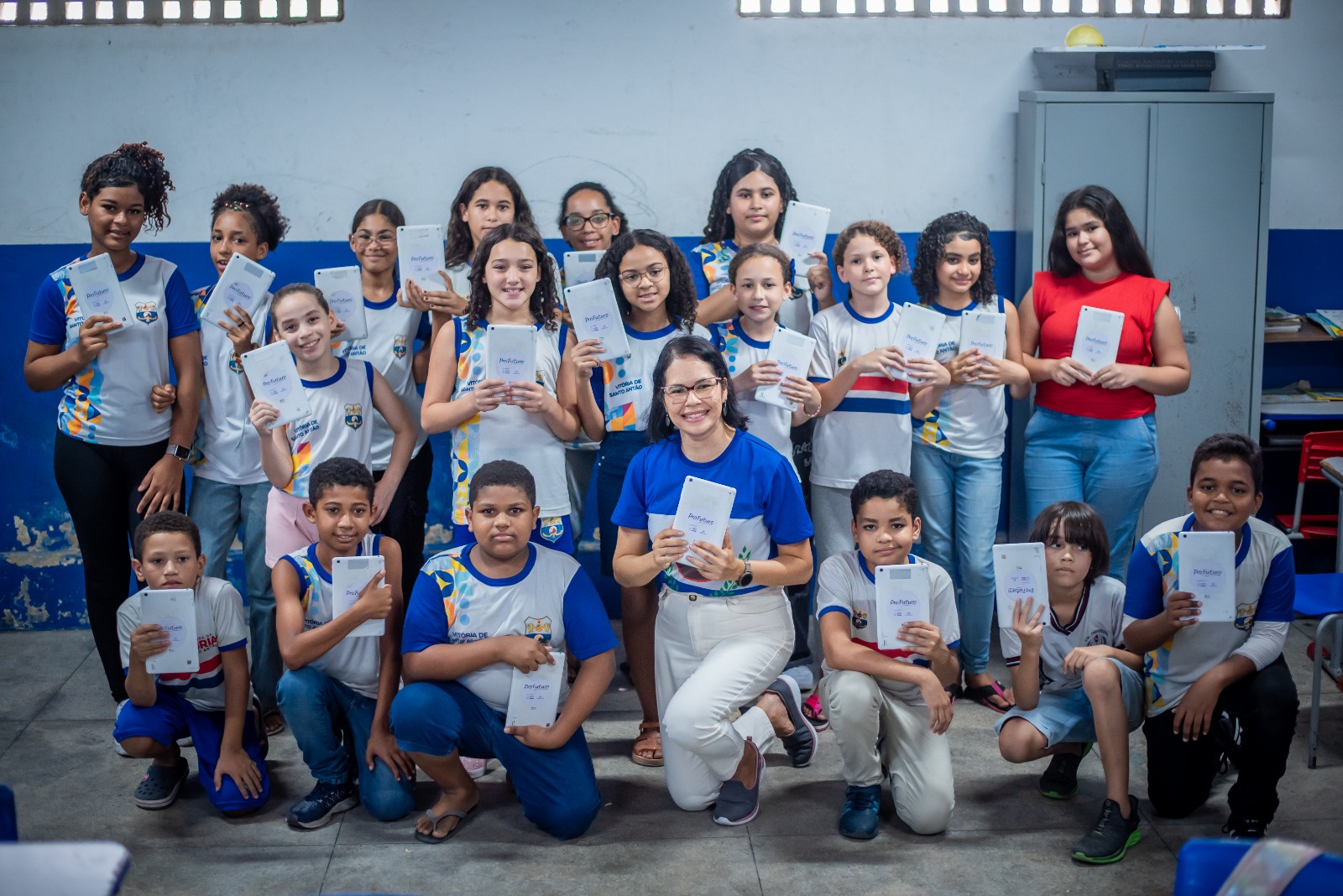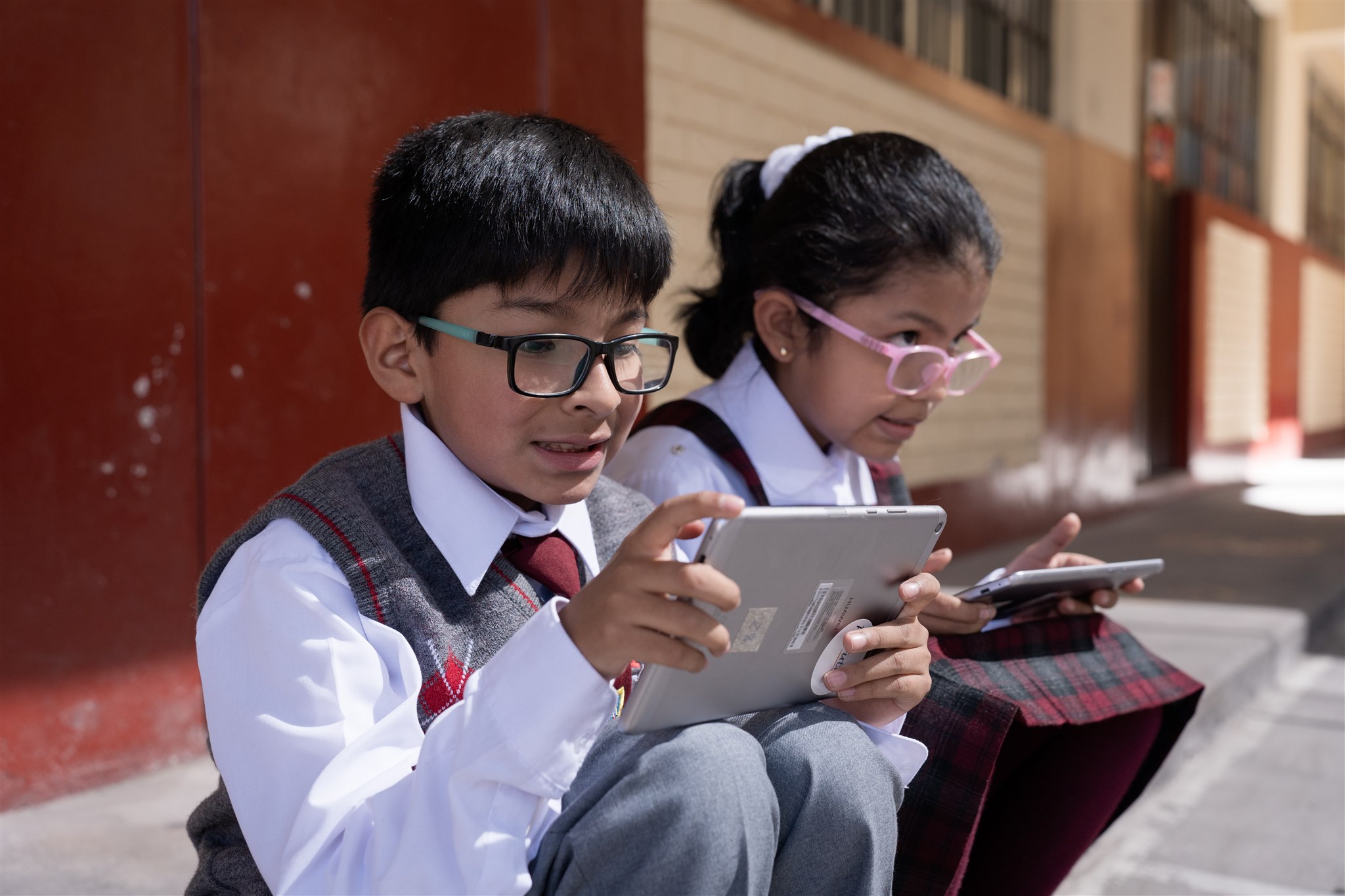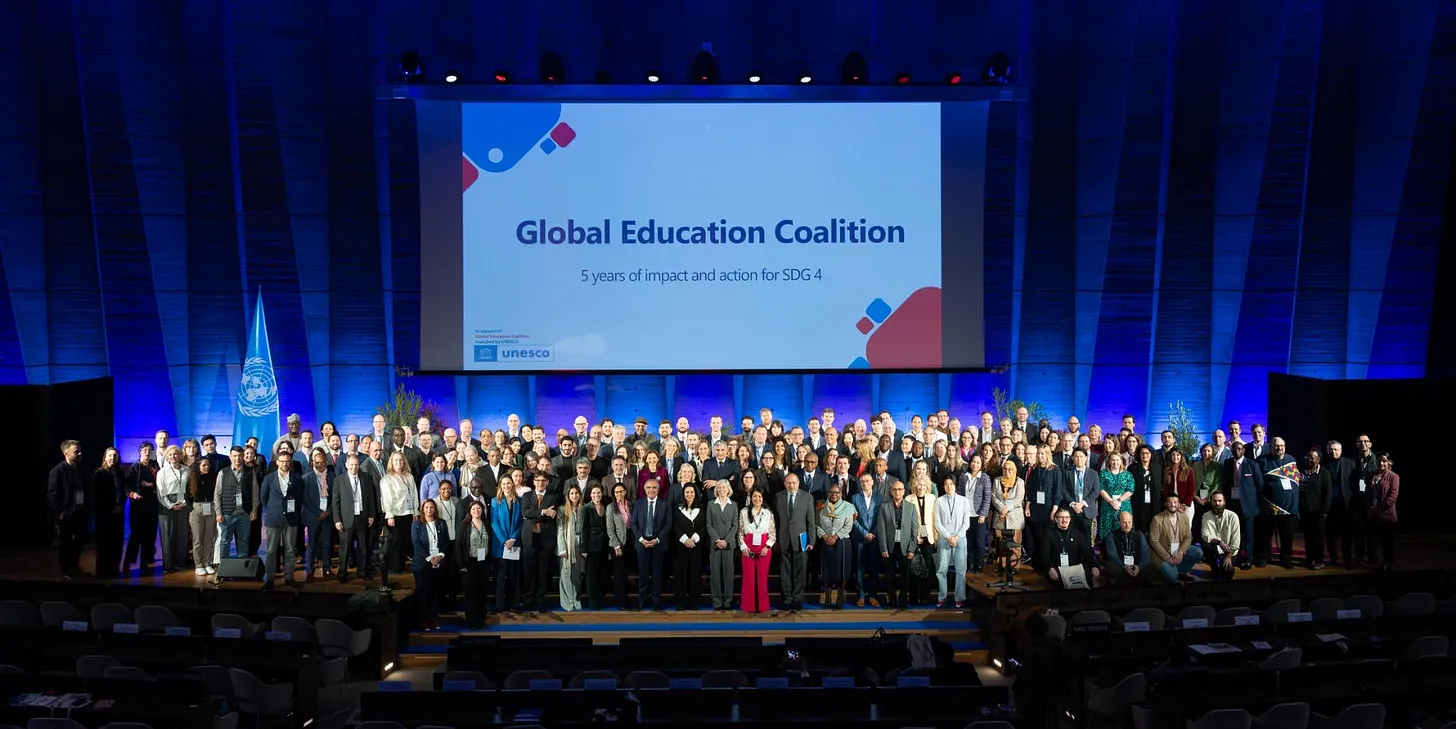At the halfway point of the 2030 Agenda, world leaders gave a comprehensive review of the status of the 17 Sustainable Development Goals during the 78th session of the General Assembly at the UN in New York last week.
Heads of State and Government met at UN Headquarters on 18-19 September to review the level of implementation of the 2030 Agenda and the 17 SDGs, as well as to provide high-level political guidance on transformational and urgent actions to achieve them by the target year.
The United Nations General Assembly (UNGA) hosted the SDG Summit, a call to action to regain momentum and for the assembled world leaders to reflect on the current situation and commit to further action.
ProFuturo, always aligned with its commitment to the fulfilment of SDG 4, was in New York to attend high-level events and meetings with organisations and institutions such as UNICEF, ITU, UNESCO and Teach For All, with the aim of learning about the current situation and supporting the attainment of Sustainable Development Goal 4.
ProFuturo and SDGs
One of the conclusions of this edition of the UNGA drawn by the Secretary General of the United Nations, Antonio Guterres, is that the “digital” facet must be at the heart of the global plan to rescue the SDGs, not because we are running out of time, but because we believe in a future where digital is more than a word: it is a catalyst for progress and all of humanity.
ProFuturo, aligned with this statement, is constantly developing practical and cross-sectoral digital skills to contribute to the fulfilment of the challenges and goals set out in education within the 2030 Agenda. ProFuturo has launched an initiative called 2030 Club, a programme focused on helping teachers and students, based on an education proposal to develop the key digital skills that promote global citizenship, life skills and sustainable development.
Education is one of the most influential factors in the advancement and progress of individuals and societies. In addition to providing knowledge, know-how and learning, education enriches culture, spirit, values and everything that characterises us as human beings. This is why ProFuturo’s educational programme aims to promote quality education based on digital skills that ensures the access of all children in the most vulnerable areas in the countries where it operates, and therefore be and act as a lever for change at a global level.
As proof and recognition of our cooperation in the 2030 Agenda, ProFuturo was honoured with the GSMA GLOMO 2023 award at the Mobile World Congress (MWC) in the category ‘Best Digital Contribution to the Sustainable Development Goals’.
Our digital education program was selected in the Tech4Good category, which recognises “initiatives that tirelessly strive to ensure that no one gets left behind on the road to true connectivity”.
The UN warns that at the current rate, the SDGs will not be met by 2030
It is the 8th anniversary of the implementation of the 17 SDGs and the UN General Assembly is sending out the alarming on the slow pace of their implementation, rising inequality and the stagnation of collective progress.
Halfway to the 2030 deadline, the achievement of the Goals is in serious trouble. Progress has stalled in the wake of the COVID-19 pandemic, the climate crisis is worsening, and the Goals related to hunger, health, education, and peaceful societies are not on track.
The Sustainable Development Goals Summit aims to find possible solutions to change this current negative trend.
Only 15% of the 140 agreed targets are on track, while almost half are moderately or severely off track and around 30% have made no progress or have fallen below the 2015 baseline.
With regard to SDG 4, quality education, the situation is equally serious. The impact of years of underinvestment and learning loss means that, by 2030, some 84 million children will not be going to school and 300 million children or young people who do go to school will leave without knowing how to read and write.
The lack of progress on the Sustainable Development Goals is universal, but developing countries and the world’s poorest and most vulnerable people are bearing the brunt of this collective failure
The 2030 Agenda and the 17 SDGs
The Sustainable Development Goals are a call to action for all countries – poor, rich and middle-income – to promote prosperity while protecting the planet. The Agenda has 17 Sustainable Development Goals, which state that poverty eradication must go hand in hand with strategies that promote economic growth and address a range of social needs such as education, health, social protection and employment prospects, all while combating climate change and protecting the environment. More important than ever, the goals provide a critical framework for the COVID-19 recovery.
In 2015, the UN adopted the 2030 Agenda for Sustainable Development, an opportunity for countries and their societies to embark on a new path to improve the lives of all people, leaving no one behind.
The 2030 Agenda for Sustainable Development is a plan of action for people, planet and prosperity, which also intends to strengthen universal peace and access to justice.
The UN member states adopted a resolution recognising that the greatest challenge in the world today is the eradication of poverty and affirming that without it there can be no sustainable development.
The Agenda sets out 17 Goals with 169 integrated and indivisible targets covering economic, social and environmental spheres.
The strategy governs the global development agenda for the 15-year period from 2015 to 2030. In adopting it, States committed themselves to mobilising the means necessary for its implementation through partnerships with a special focus on the needs of the poorest and most vulnerable.
The 17 Goals of the Agenda were developed over more than two years of public consultations, interaction with civil society and negotiations between countries, and imply a common and universal commitment. However, as each country faces specific challenges in its quest for sustainable development, States have full sovereignty over their wealth, resources and economic activity, and each set their own national targets, adhering to the Sustainable Development Goals (SDGs), whose text was adopted by the General Assembly.
In addition to ending global poverty, the SDGs include, among other things, eradicating hunger and achieving food security; ensuring healthy lives and quality education; achieving gender equality; ensuring access to water and energy; promoting sustained economic growth; taking urgent action on climate change; promoting peace; and providing access to justice.
If you want to know more about Sustainable Development Goal 4, quality education, stay tuned, as part 2 of this story will be sent out soon…
Follow us on social media!
X: @ProFuturo_
IG: @profuturo_
FB: @ProFuturoEducation
YT: ProFuturo
Sign up for our newsletter to receive more information!






